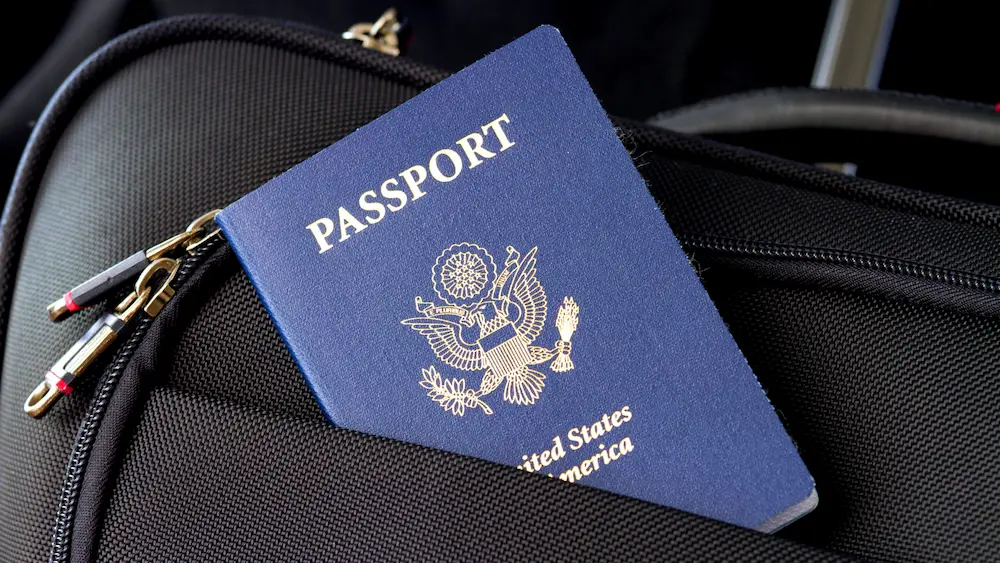Why Travel Insurance Is Surprisingly Affordable
Are you one of those who’ve ever hesitated to consider travel insurance, assuming it to be an added expense to your already budget-stretched journey? Many travelers overlook the importance of travel insurance, often due to misconceptions about its affordability.
Let’s debunk this myth right here! Travel insurance isn’t just for the frequent travelers; it’s for everyone. Unlike other insurance types, travel insurance focuses on incidents such as trip cancellations, medical emergencies abroad, and loss of personal property. This tailored approach is essential because the risks associated with travel are unique and require specialized coverage and pricing.
In this blog, we’ll delve deeper into the world of travel insurance, unraveling its benefits, demystifying its costs, and equipping you with the knowledge to make informed decisions for your next adventure. So, if you’ve ever wondered whether travel insurance is worth it, you’re about to discover why it’s not just affordable but essential for travelers like you.
The Foundations of Travel Insurance Pricing
Have you ever wondered how insurance companies determine the price you pay for coverage? Let’s delve into the intricate world of travel insurance pricing to understand the foundations behind it.

Risk Assessment in Insurance
At the core of insurance pricing lies risk assessment. Insurance companies meticulously evaluate various factors to gauge the likelihood of an event occurring and the potential financial impact it could have. When it comes to travel insurance, risk assessment involves analyzing a multitude of variables such as destination, trip duration, traveler’s age, pre-existing medical conditions, and the type of coverage desired.
For instance, older travelers or those with pre-existing health conditions are deemed riskier to insure due to the likelihood of medical emergencies during the trip.
Industry Competition’s Role in Pricing
Competition within the insurance industry also influences pricing strategies. Insurance companies vie for market share by offering competitive premiums while still maintaining profitability. As such, pricing may vary among insurers offering similar coverage based on their risk assessment methodologies, overhead costs, and underwriting standards.
Furthermore, advancements in technology and changes in consumer behavior impact pricing dynamics. Insurtech companies, leveraging data analytics and digital platforms, may disrupt traditional pricing models by offering more personalized and competitive rates tailored to individual risk profiles.
Risk Mitigation Strategies Employed by Travel Insurance
Data-Driven Underwriting
Insurance providers, including those specializing in travel insurance, employ data-driven underwriting to accurately assess risk and set premiums. This approach allows for more precise pricing, which can lead to more affordable travel insurance policy options and coverage for travelers.
Loss Prevention Initiatives
Many insurance companies invest in loss prevention initiatives to reduce the likelihood of claims. For travel insurance, it could involve providing clients with information on how to protect their personal property while traveling.
Strategic Reinsurance Partnerships
Insurance companies often enter into reinsurance agreements to spread the risk of large claims. This practice is common across the insurance industry, including among travel insurance companies, and helps keep insurance costs manageable for consumers.
Operating Efficiency and Technological Advancements
The adoption of technology in the insurance industry has led to significant cost savings. From online quotes to automated claims processing for travel insurance, technological advancements have made travel insurance more accessible and affordable.
Digital transformation extends beyond customer-facing technologies. Insurance companies are also streamlining their internal processes with technology, improving efficiency, and reducing overhead costs. This efficiency translates into more competitive insurance costs for consumers, including lower insurance rates and more affordable travel insurance options.
Target Market Considerations
Travel insurance companies often profile their ideal customer to tailor their insurance products and pricing. Offering tailored coverage options allows insurance companies to provide more affordable insurance products. Whether it’s full coverage insurance policy or custom travel insurance packages, customization helps match coverage to the customer’s specific needs without overcharging for unnecessary benefits.
Regulatory Environment and Compliance
Regulations play a critical role in shaping the offerings and prices of travel insurance products. These rules, set by regulatory bodies, ensure that insurance companies maintain a balance between offering adequate protection and remaining financially viable.
Insurance companies, such as those offering comprehensive specialized travel insurance, must adhere to these standards, which can influence the affordability of their offerings. Compliance with regulatory requirements ensures that insurance costs remain fair and transparent, making travel insurance surprisingly affordable for consumers seeking reliable coverage options.
Claims Management and Fraud Prevention
Efficient Claims Processing
When an unexpected event occurs during a trip, travelers rely on their insurance coverage to mitigate the financial repercussions. Therefore, prompt and seamless claims processing is essential to provide timely assistance and uphold customer satisfaction.
Insurance companies leverage advanced technologies and streamlined processes to expedite claims handling. From online claim submission portals to mobile apps facilitating documentation uploads, insurers strive to simplify the claims process for policyholders. Additionally, dedicated claims teams work diligently to review and settle claims efficiently, ensuring that travelers receive the assistance they need without undue delay.
Investments in Anti-Fraud Measures
To combat fraud effectively, insurers invest in robust anti-fraud measures. This includes leveraging data analytics to identify suspicious patterns and anomalies indicative of potential fraud. Dedicated claims investigation units conduct thorough inquiries, collaborating with external partners when necessary.
Additionally, insurers deploy specialized fraud detection software, continually adapting to evolving fraud schemes. Through employee training and awareness programs, insurers foster a culture of vigilance within their organizations, empowering staff to play an active role in fraud prevention efforts.

Global Economic Factors’ Impact on Pricing
Inflation rates, particularly in the healthcare sector, play a significant role in determining the cost of travel insurance. As medical costs continue to rise globally, insurers may choose their preferred premiums to account for increased expenses associated with medical treatment and emergency assistance during travel.
Countries with higher healthcare costs or where medical inflation outpaces general inflation rates may experience greater premium increases for travel insurance coverage. Insurers factor in these rising costs when assessing the overall risk and pricing policies accordingly.
In addition, economic stability and risks in destination countries can also influence the pricing of travel insurance. Travel to regions characterized by political instability, civil unrest, or economic uncertainty poses higher risks for insurers, leading to higher premiums for coverage in those areas.
Summary
The affordability of travel insurance is shaped by a complex mix of regulatory, operational, and market factors. Key elements include regulatory environments that dictate fair practices, efficient claims management and fraud prevention efforts that keep costs down, and the influence of global economic trends on insurance rates. These components work together to ensure that travel insurance remains affordable, balancing the need for comprehensive coverage with the desire for cost-effective solutions.
Understanding these dynamics offers insight into how insurance providers manage to offer valuable protections without extreme costs, highlighting the intricate balance between affordability and reliability in the travel insurance industry.
Explore Affordable Travel Insurance Options With battleface Today!